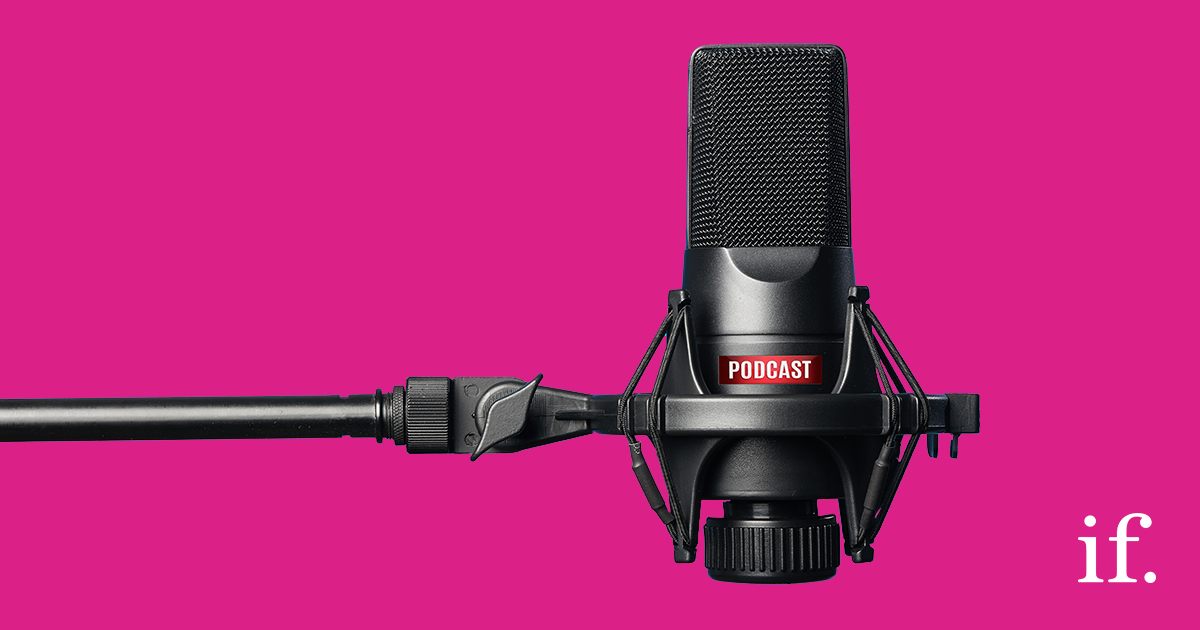Ep 21: Brands! Don’t get cancelled
Cancel culture has been around for almost two decades but, like most things, has accelerated in 2020. Businesses need to make sure they protect their reputation and adapt to changing audience behaviours. But where to start? We explore the things you need to think about to help you get started.
If you’re after more know-how to break the social boring, subscribe now.
Full Transcript
Welcome to the Serious Social podcast, created by the straight-talking social media experts at immediate future. In this episode, we’re talking cancel culture and how businesses can protect their reputation on social!
Hi, I’m Katy Howell from immediate future and I’m going to be talking about how you can protect your reputation on social, particularly during this cancel culture that we have right now. In fact, call-out or cancel culture has been around for some years now – almost two decades according to Vox. But like many things, it’s accelerated through the last months. Driven by mistrust driven by COVID messages, politics and governments, and because of movements such as BLM or #StopHate4Profit.
The impact is seen whether you’re famous, like JK Rowling, or a recognisable brand such as L’Oréal or Boohoo. It’s safe to say, you cannot ignore it.
The dictionary definition of cancel in this context means to stop giving support to the person—or brand—in question. It’s a way to hold a person or company to account for perceived transgressions through public shaming.
Of course, whilst some cancellations have an obvious rationale, opinions do differ widely on others. For many brands, the unpredictability of the debate can create fear when planning social marketing. Nervousness that being bold and noisy may come back to bite them.
Actually, most businesses are very unlikely to be called out. Good. But you’re missing the point if you think you should do nothing. The trend to cancel is a sign that audiences care a great deal about who they buy from.
GWI data from their COVID research shows that 43% of UK audiences think that businesses should ensure diversity in leadership if they want to support BLM. YPulse’s research shows that 69% of young consumers believe brands need to make an effort to be politically correct, and 65% actively avoid brands that oppose the causes they support.
You don’t need to be shamed on social to see an impact in your business.
Social is where your audience shares its beliefs, views and emotions. People make it clear they want transparency, authenticity and honesty from brands.
How can businesses make sure they protect reputation and adapt to changing audience behaviours? Here are the 4 things you need to think about…
- Prepare inside out and outside in
Right now every business should be looking at its practices from the inside. Its purpose and its messages. Revisit products and services and double-check supply chains. Scrutiny is the first step in ensuring you don’t have any skeletons in the cupboard. The second step is to reflect on how your business is perceived.
How can you be open, genuine and not paper over the cracks with a raft of tweets or Facebook posts? You cannot pretend to have a purpose or support a cause. It doesn’t work like that and negativity will snowball once you are uncovered.
You’ll also need to look outside your organisation too. Connections create a network of social proof, but not if those connections are not good. So, take a hard look at your partners, suppliers, ambassadors and influencers. Do they align with your brand values and your customer expectations?
Of course, the glorious side effect of doing this is that you become a better business along the way. In step with societal expectations, with brand values, you can be proud to shout about. Take IBM for example who declared they will move away from the facial recognition business in an ethical and moral stand on privacy.
- Stop wandering in the dark
If you’re not listening, you cannot tell when things change and move on. Last year veganism dominated many social feeds. This year it’s been a series of random foods from banana bread to Sourdough. The last few months have seen audiences become fickle and flick fast between topics, causes and beliefs.
It means companies need to know their audiences well and stay tuned in. Be hyperaware of what might trigger negative responses and stay close to what they care about. Brands that go against their target market’s values don’t fare well.
And above all, avoid jumping on bandwagons. There is very little tolerance for virtue-signaling or as it is sometimes called, slacktivism – empty activism
In the #StopHate4Profit movement, some brands are finding that their own practices and products have come under examination.
When Unilever announced its Facebook boycott, it posted “We have a responsibility for racial justice” on Instagram. Customers pointed out that the Unilever’s ‘Fair & Lovely’ brand, promoted skin whitening and they received responses such as, “All this while you make millions from whitening cream? Double standards to say the least #boycottunilever.”
But if you have a right to celebrate a value or support a cause then you’ll find not only positivity but a large amount of advocacy too.
People buy products from brands that support the causes they believe in.
- Be a loved brand
There is more to social success than doing the right thing as a business. If you don’t make the emotional and value connection the impact is minimal. So, beyond being a good company, create a brand people want to associate with.
That means understanding your audiences better, mirroring language, understanding behaviours and being emotional in your comms.
For many companies that also means having a personality, opinion and to stand for something more. Get this right and you’ll be liked and trusted.
- You can’t hide
Understandably many businesses are cautious of conflict and steer clear of difficult political or social issues
But this too can be problematic. It’s impossible to have audiences agree with everything that you do or say. However, taking a back seat on important issues when your audience needs your support the most, is not enough.
Have a position and plan for potential negativity. That also means planning for a backlash.
What happens if you do get called out?
Well, honesty is the best policy. Swallow your corporate pride and if you got it wrong, recognise the mistake, explain how you’ll rectify it and apologise. A genuine, human apology and a commitment to change can start the process of building back reputation. If you haven’t got it wrong say so. Have an opinion.
Silence is never an option and can actually make it worse.
In a cancel culture world, social media is the sharp end of your business that can only be protected if you scrutinise your practices, products and services first before you shout about them. You can only navigate societal expectations if you understand your audiences and listen to their changing values. And that you can only prepare for if you are able to be humble and honest in your response to mistake and open with your brand positioning.
Next week, we’ll hear more from CJ in the meantime do sign up to our podcasts or follow our blog at immediatefuture.co.uk
If you’re after more know-how to break the social boring, subscribe now and check out the show notes for links to our website and social profiles.




